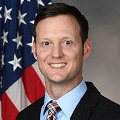Scientists work in departments, agencies and offices across government.
Scientists conduct research and work in the areas of regulatory affairs, public policy and grant administration and others across departments, agencies and offices in the U.S. government . Federal agencies employing science professionals include the Centers for Disease Control and Prevention, National Institutes of Health, National Science Foundation, Environmental Protection Agency and NASA. Federal departments that employ scientists include the departments of Agriculture, Interior, Commerce and Defense.
The departments of the Army, Navy and Air Force employ scientists in civilian and officer capacities to conduct research on the unique physical requirements and challenges of the military forces, manage research operations and provide expert advice.
Legislative entities, such as congressional committees and individual members of Congress, employ policy advisors to inform committee work and support policy development.
WATCH: To better understand the experience of researchers conducting science in a military context, APS Executive Director Scott Steen, CAE, FASAE, spoke to three esteemed civilian scientists and APS members working in the armed forces.
Learn about Career Opportunities for Scientists in Government
Scientists work within a department or agency to plan, manage and conduct research projects related to specific issues of interest. The work of federal research scientists ensures that departments have the scientific knowledge necessary to develop effective policies, regulations, programs or products to meet the future needs and challenges of the department. Job titles in the federal research sector may include: research scientist, research physiologist, science program manager and career scientist.
Scientists with research experience may progress to roles that provide strategic, technical and scientific leadership to coordinate research within a department or agency. Physiologists in these positions also facilitate collaboration with other federal agencies and the private sector to develop and initiate research. Job titles in science research leadership roles may include: senior scientist, research laboratory director, science officer, program director and division director.
Elected officials and department or agency leadership may employ science advisors to analyze scientific reports and to provide recommendations on voting, policy priorities, strategic planning and budgetary actions. Job titles in science policy may include: science policy analyst, legislative analyst, management and program analyst, policy advisor, policy specialist and policy officer.
Funding agencies—such as the National Institutes of Health—employ professionals to facilitate the organizational work to review and award grants or facilitate research projects and training programs related to the organization’s priorities. Program officers engage with applicants and grantees, provide funding recommendations and oversight of grantee research progress. Scientific review officers guide the grant application and peer review process. Job titles in grant administration include: grant review specialist, management specialist, program manager, program director, administrator, program officer and scientific review officer.
Communications professionals translate technical research for decision makers, stakeholders and members of the public. This can include creating compelling stories about science for print and online media (e.g., newspapers, magazines, blogs, newsletters), broadcast media (e.g., radio, television, podcasts) and social media. Job titles in science communications may include: include: public affairs specialist, communications specialist, technical writer, scientific writer and editor.
Government agencies may provide programming and resources to make science accessible and increase understanding of specific disciplines. Understanding community needs and the resources targeted to a specific audience (e.g., underrepresented populations, local communities, parents, teachers) is key role for science education and outreach professionals. They often work with a multidisciplinary team and contribute their scientific expertise and creativity to products, programs and experiences offered by the agency. Job titles in science education and outreach may include: community specialist and program specialist.
The U.S. Patent and Trademark Office employs professionals to work with entrepreneurs to process and review patent applications, research existing patents to ensure inventions are new and unique, draft responses for applicants and determine whether patents can be granted for inventions. Job titles in the area of patent review may include: patent review specialist and patent examiner.
Federal government job openings are posted at USAJobs.gov.
Members in Government
 John Harrell, PhD
John Harrell, PhD
Research Physiologist
Aerospace Physiology Research Section
U.S. Air Force

 Leslie C. McKinney, PhD
Leslie C. McKinney, PhD Pharmacologist
FDA Center for Drug Evaluation and Research

 Carmen Hinojosa-Laborde, PhD, FAPS
Carmen Hinojosa-Laborde, PhD, FAPS
Research Physiologist
U.S. Army Institute of Surgical Research

 Victor Convertino, PhD, FAPS
Victor Convertino, PhD, FAPS
Director
Battlefield Health & Trauma Center for Human Integrative Physiology
U.S. Army Institute of Surgical Research

